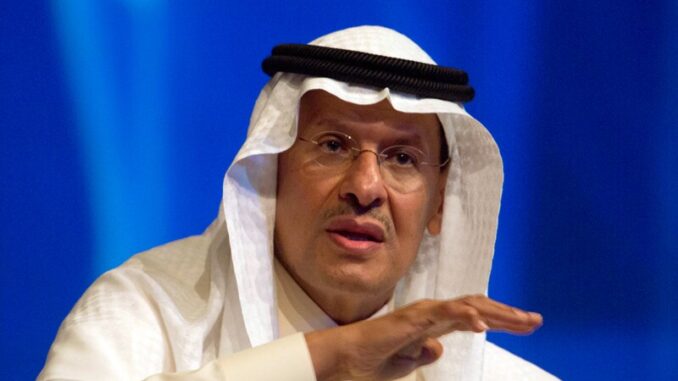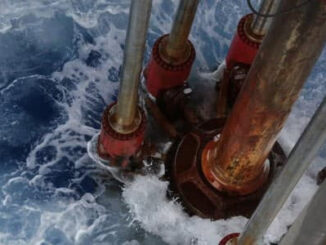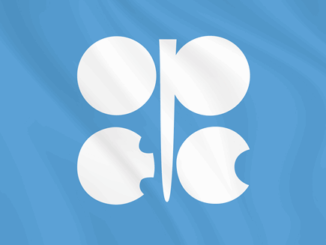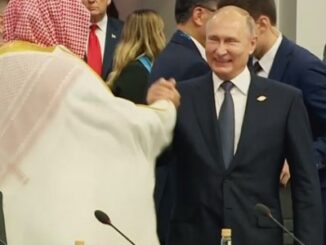
Saudi Arabia’s energy minister has said that all options are on the table for Opec-plus, as it seeks to calm a “yo-yo” oil market that he views as a threat to energy security and the global economy.
In an interview with Energy Intelligence on Monday, Energy Minister Prince Abdulaziz bin Salman said options to tame the ups-and-downs of global oil markets include production cuts — if needed — by the Opec-plus producer group.
The widening discrepancy between physical crude and futures markets is having a negative impact on the energy industry, while creating difficulties for traders and companies to hedge oil prices, the Saudi minister said in the interview.
“The paper oil market is facing a vicious cycle of very thin liquidity and extreme volatility, which in turn is creating a disconnection between the physical market and the futures market,” Prince Abdulaziz said.
“Opec-plus has the flexibility and the commitment among members within the Declaration of Cooperation to deal with market challenges and provide guidance, including cutting production at any time and in different forms, as has been clearly demonstrated in 2020 and 2021,” he said.
The Declaration of Cooperation is the agreement that created the broader Opec-plus group, providing a framework for Opec to cooperate with Russia and other non-Opec producers.
Prince Abdulaziz cited the deep production cuts made by Opec-plus to counter the impact of the Covid-19 pandemic as an example of an appropriate response to ensure that the world’s most important commodity market continues to function properly.
Oil prices have swung wildly in recent months as the market digests the threat to Russian exports from Western sanctions in response to Russia’s invasion of Ukraine.
Talks on reviving the Iran nuclear agreement — which would increase Iranian oil supplies to the market — have added further uncertainty, as has the prospect of an economic slowdown triggered by rising inflation and higher interest rates.
False Message
Prince Abdulaziz warned that recent oil price volatility sends a false message about security of supply at a time when global spare production capacity is low.
Crude oil prices have dipped below $100 per barrel in recent weeks, having exceeded $120/bbl earlier in the year.
“This vicious circle is being magnified by the constant flow of unsubstantiated stories about demand destruction, news about the return of large volumes of supply and ambiguity and uncertainty about the potential impacts of price caps, embargoes and sanctions,” he said.
The minister made similar comments in an interview with Bloomberg that were carried by the official Saudi Press Agency.
He argued that energy policies need to be long-sighted to preserve market stability.
The ability of major industrial users, including refineries, to hedge the market risk of their oil purchases is seen as critical to their operations and the overall health of the global economy.
Skyrocketing and volatile natural gas prices in Europe have also made it difficult for industrial users there to hedge their purchases.
Prince Abdulaziz and other Saudi officials have previously urged oil producers around the world to increase investment in the upstream sector in order to safeguard the security of energy supplies.
He told a conference earlier this year that energy security is necessary for economic prosperity and that both are needed to “attend to climate change.”



